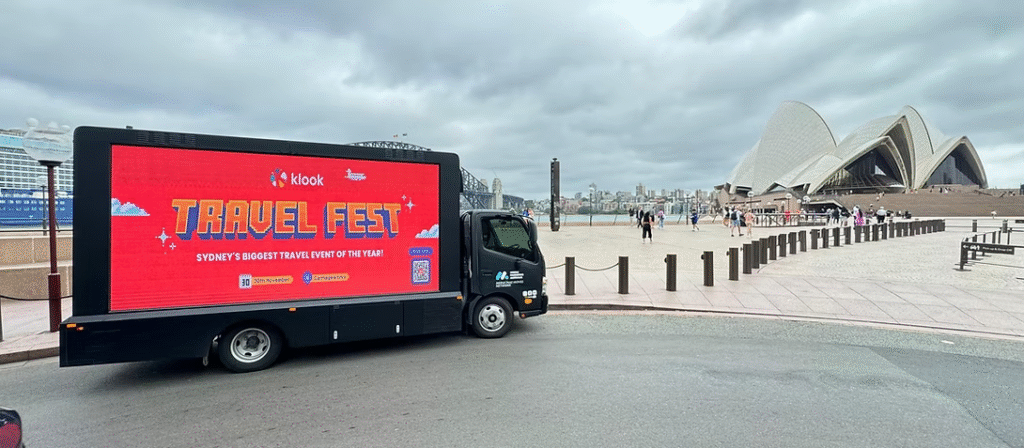In the evolving world of outdoor marketing, truck billboard advertising stands out as a cost-effective and highly visible solution. Unlike static billboards, which are location-bound, mobile trucks reach audiences across various locations throughout the day, maximizing brand exposure in key areas. When executed strategically, this form of advertising drives local awareness, supports product launches, and complements broader media campaigns.
To achieve optimal results, businesses must approach truck billboard advertising campaigns with a focused strategy that aligns with audience behavior, geographic priorities, and timing.
Understanding the Impact of Truck Billboard Advertising
Truck billboard advertising transforms vehicles into moving promotions, making them effective for:
- Reaching drivers, pedestrians, and commuters in high-traffic zones
- Targeting specific events, neighborhoods, or commercial areas
- Generating high impressions without ongoing ad spend per view
- Enhancing recall through repetitive brand exposure across different locations
This method is particularly beneficial for short-term promotions, local businesses, and political campaigns, though national brands increasingly use it for urban reach and product awareness.
Planning Your Billboard Route Strategically
Route planning is crucial to the success of any mobile campaign. Your truck must be seen by the right audience at the right time and place.
Identify High-Traffic Zones
Choose roads and intersections with consistent vehicular or pedestrian congestion. Central business districts, shopping centers, and school zones are ideal spots for exposure.
Sync with Consumer Behavior
If your product is aimed at office-goers, ensure the truck moves through corporate hubs during morning and evening hours. For retail brands, weekends near malls and retail parks are more effective.
Time-Based Targeting
- Morning commutes (7:30 AM – 9:30 AM)
- Lunch hours near commercial centers (12 PM – 2 PM)
- Evening traffic (4:30 PM – 6:30 PM)
- Special events like sports games or festivals for concentrated exposure
Designing an Eye-Catching Billboard
Your truck’s visual appeal can make or break your campaign. Here are core principles to follow:
Keep the Message Simple
Convey your offer or brand message in under five seconds. Focus on large fonts, minimal text, and clear brand visuals.
Use High-Contrast Colors
Choose bold, contrasting colors that pop against the truck’s background and remain legible from a distance.
Include a Strong CTA
Guide viewers toward the next action—whether it’s a QR code scan, phone number, or website visit.
Leverage Motion-Activated Content
Some digital billboard trucks support animated ads or rotating slides, which allow you to test multiple creatives and increase engagement.
Compliance and Regulations
Before launching, consult local councils or transport authorities regarding advertising rules. Some cities restrict commercial vehicle movement in residential zones or prohibit illuminated signs during specific hours.
Make sure your vehicle meets:
- Road safety standards
- Size and height restrictions for displays
- Local council permissions (if applicable)
- Noise or brightness limitations for digital screens
Measuring Campaign Success
To validate ROI, businesses must implement ways to measure the performance of truck billboard advertising:
- QR Codes or short URLs for tracking mobile traffic
- Geotargeted landing pages tied to specific areas the truck covers
- Coupon codes or promo phrases exclusive to mobile ads
- Audience surveys to assess brand recall after campaign completion
Additionally, advanced mobile trucks may offer GPS tracking and impression analytics to estimate reach based on location and traffic density.
Why Work with a Professional Mobile Billboard Company
Collaborating with a reputable mobile billboard company ensures access to fleet options, pre-approved routes, experienced drivers, and strategic consulting. These providers help optimize routes, manage compliance, and offer performance reporting to refine ongoing efforts. Their experience also ensures the creative execution matches campaign objectives and aligns with industry standards.
Choosing the right partner can simplify logistics and significantly enhance campaign effectiveness, especially for first-time advertisers or brands expanding into new regions.
Final Thoughts
A well-executed truck billboard advertising campaign can deliver highly visible, targeted impressions in a cost-efficient format. By combining smart route planning, creative design, and measurement tactics, businesses can turn ordinary streets into dynamic stages for their brand message. As consumer attention becomes increasingly fragmented, this mobile format presents an opportunity to stay top-of-mind—wherever your customers go.


